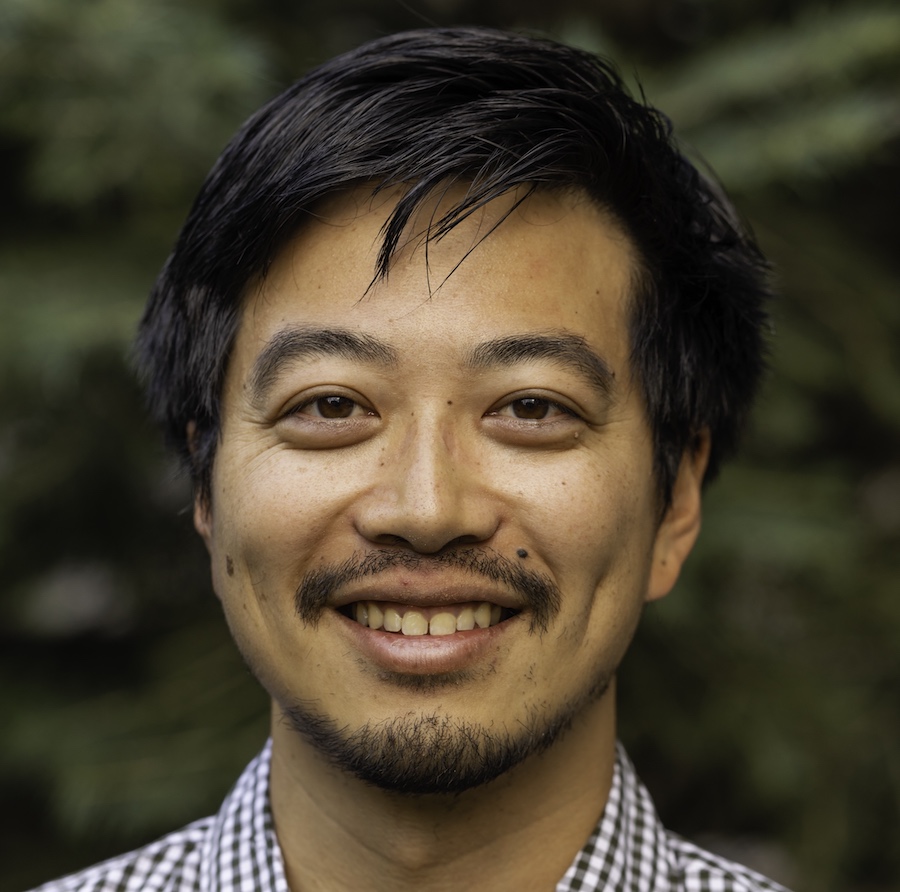The International Cytokine and Interferon Society has recognized University of Colorado Cancer Center member Edward Chuong, PhD, with its 2023 ICIS-Regeneron New Investigator Award for Excellence in Cytokine and Interferon Research.
Chuong, a researcher and assistant professor of molecular, cellular, and developmental biology at the University of Colorado Boulder, was chosen for the award for his work with ancient mobile genetic elements called transposons.
“We think of them as virus-like elements that are embedded within our DNA,” Chuong says. “Viruses are genetic parasites in the sense that a viral genome encodes the ability to parasitize a host cell and make more copies of itself. A transposon, similarly, is also a genetic parasite that can hijack the host cell to replicate itself. The difference is that a transposon, rather than leaving the cell and infecting another cell, is trapped within the cell. It copies and pastes itself throughout the genetic material of the host cell. If you think of the genome of any organism on the planet, including humans, a lot of our DNA is derived from transposons.”
Transposons and immune signaling
Chuong’s lab is especially interested in the role of transposons in immune signaling regulation, or the communication network our cells use to coordinate the immune system. He is looking at the effects of transposons on interferon, naturally occurring proteins that protect the body from viruses. By analyzing long-read RNA data from human cells, he has found that transposons can both help and hinder interferon receptors in the immune system, research that may lead to new targets for medications.
“The immune system is a complicated signaling network,” he says. “Diseases like autoimmunity or severe COVID happen when something goes wrong with that communication network. We think transposons play an underrecognized but important role in shaping our immune response. If you think of the human genome as an ecosystem, it's like an arena where this battle between transposons and the host is playing out.”
The cancer connection
Chuong also is studying biologically significant transposons that affect gene regulation in the contexts of immunity and cancer. Integrating functional genomic analyses with experimental studies, his lab is looking to gain a better understanding of transposon co-option. Already, his work has provided key evidence supporting important roles for transposons in shaping mammalian evolution and disease.
“In cancer, many of the transposons that are typically silenced in healthy cells become reactivated,” says Chuong, who was recognized as a Kavli fellow in 2021 and has competitive grants including a NIGMS ESI R35, Packard Fellowship, Sloan Fellowship, and Boettcher Investigator award. “We study their consequences in that regard as well. The big picture here is that transposons are an underappreciated but abundant source of enhancers, genes, and other functional elements in our genome.”
In January 2023, Chuong and CU Cancer Center member Benjamin Bitler, PhD, published a paper on resistance to immunotherapy in women with ovarian cancer. The research is just one of the partnerships Chuong has with other cancer center members to explore the role of transposons in making the immune system more or less susceptible to therapy.
“My lab has recently started looking at this particular axis and how it can go wrong in cancer,” he says. “That might cause therapy resistance in certain cancers, especially since so many therapies rely on these immune signaling pathways to be effective. Interferon is approved by the FDA to treat myeloma and several other cancers, and I want to look further into the consequences of transposons on that therapy.”




